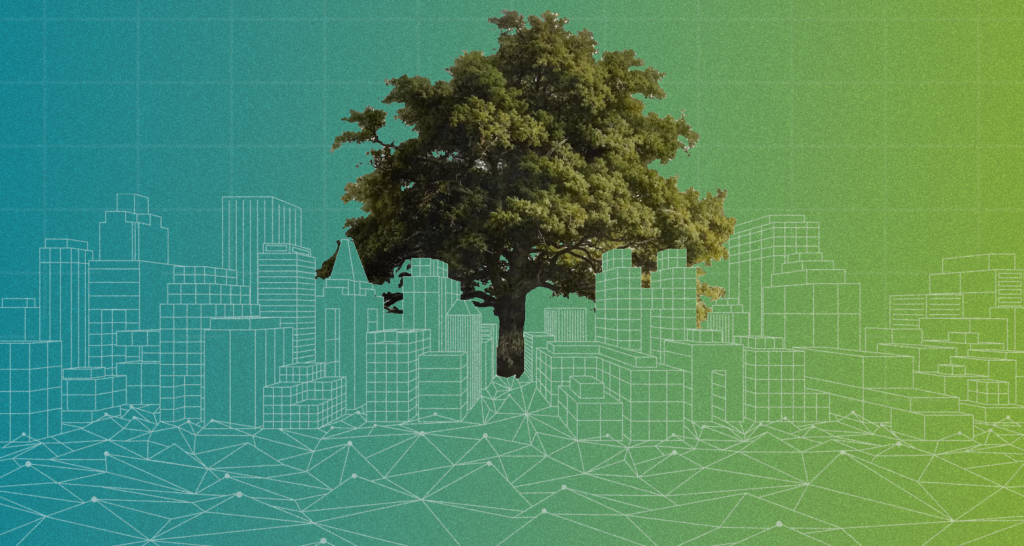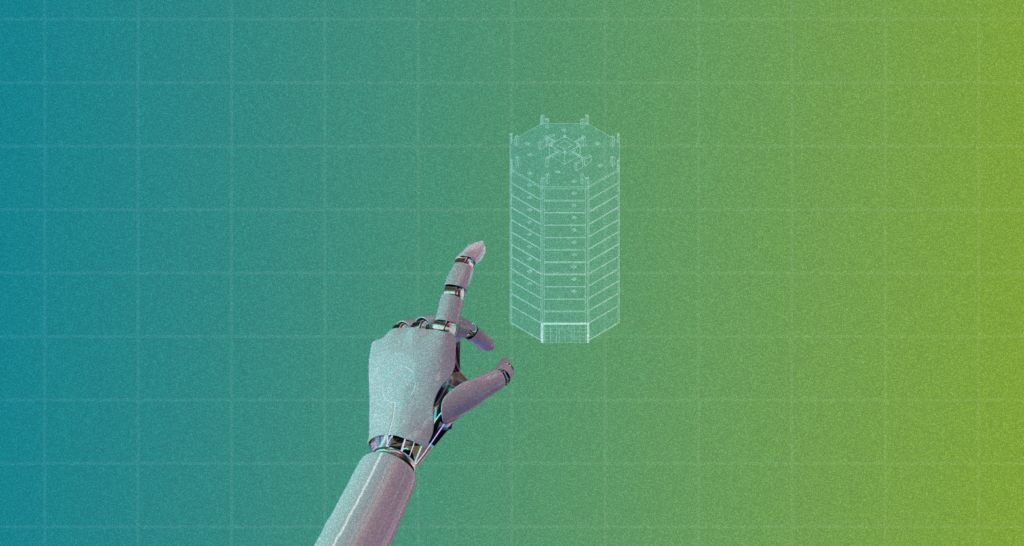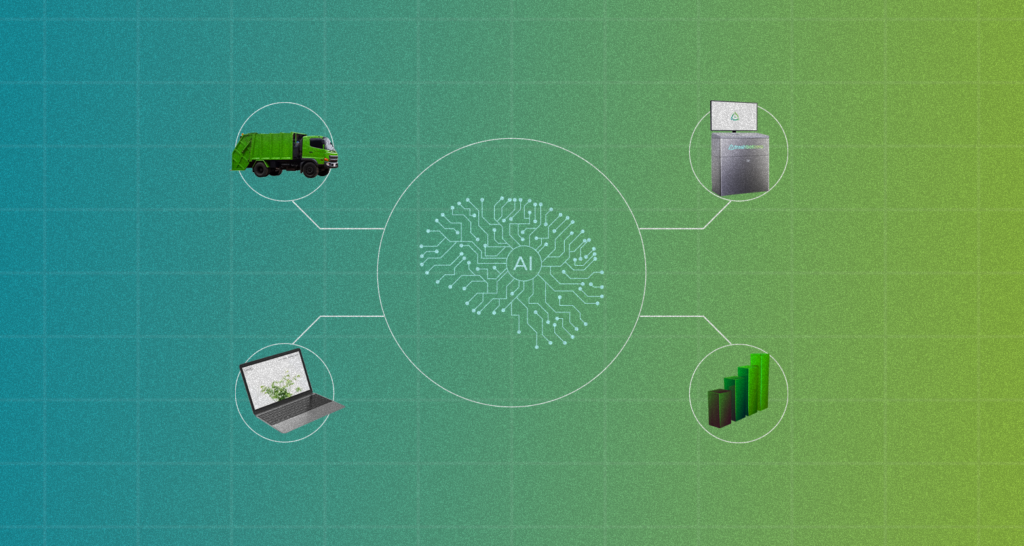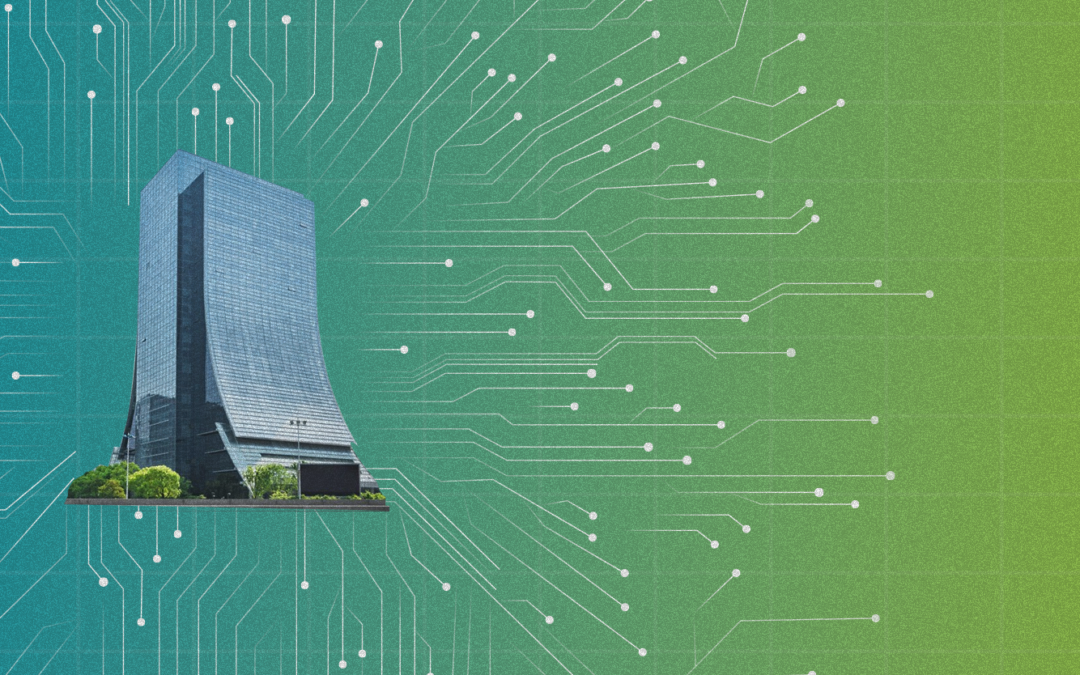Can AI Shape a Greener Future for Facility Operations?
In today’s dynamic landscape, the impact of Artificial Intelligence (AI) on business functions stands as a testament to the fast integration of new innovations. The recent surge in AI’s capabilities, exemplified by the growing popularity of ChatGPT, highlights a pivotal shift. This surge represents an era where users embrace AI-driven solutions at their fingertips, harnessing their benefits while integrating them across diverse business functions.
This transformative potential of AI beautifully aligns with the core goals embedded within facilities management—conserving resources, mitigating wasted time, and reducing operational costs. These objectives resonate deeply with sustainability and efficiency, particularly for those overseeing high-traffic facilities or multi-building operations. The ripple effects of resource management, energy usage, and waste generation (just to name a few) can compound exponentially within vast operations, magnifying their impact on sustainability endeavors.
Integrating AI in facility management emerges as a beacon of hope, offering solutions to optimize resource utilization, minimize waste generation, and enhance operational efficiency. This becomes especially vital in steering high-traffic facilities towards sustainable practices, where AI’s intervention holds the promise of streamlining processes, mitigating waste, and promoting eco-conscious operations.

Rethinking Operations Management
Facility management encompasses many tasks and responsibilities, demanding seamless coordination and oversight of processes and physical assets. The complexities inherent in this domain are vast, from maintaining heating and ventilation systems to ensuring stringent security measures. Enter Artificial Intelligence (AI), poised to revolutionize these operations and drive efficiency gains while enhancing functionalities.
McKinsey & Company estimates that AI’s integration into the global economy will yield substantial value, up to $4.4 trillion, reshaping work dynamics by augmenting individual capabilities. By automating nearly 70% of individual activities, this augmentation is projected to contribute up to 3.3% annually to productivity growth. Such figures underscore AI’s monumental shift to the operational landscape, particularly in facility management.
Facilities stand at the threshold of substantial gains from AI’s prowess. The ability to predict, optimize, and automate processes heralds a new era in streamlining operations. These AI-driven insights empower strategic decision-making within facility management. They enable the adoption of sustainable materials, efficient planning of construction processes, and reducing waste generation—a transformation that transcends traditional facility management paradigms.
Integrating AI in facility management redefines the very essence of this field, aligning it profoundly with environmental responsibility. By automating routine activities and optimizing resource utilization, AI drives efficiency and fosters sustainable practices. The impact is multifaceted: from reducing operational costs to enhancing overall functionalities, AI emerges as the keystone in elevating facility management’s role in fostering environmentally conscious operations.
This amalgamation of AI-driven optimization and sustainability underscores a pivotal evolution in facility management. By leveraging the capabilities of AI, facility managers are not just optimizing processes; they’re becoming stewards of environmental responsibility, orchestrating a harmonious balance between efficiency gains and eco-conscious practices.

AI Innovations Revolutionizing Facility Operations
Integrating AI in facility management is a beacon of change in pursuing greener facility operations, reshaping how facilities manage their operations while championing a sustainable environmental impact. The following AI innovations offer a panoramic view of possibilities, redefining the traditional paradigms of facility operations. From predicting construction outcomes to optimizing resource allocation, from revolutionizing waste management practices to empowering data-driven decision-making—each facet is imbued with the transformative potential of AI.
Construction Processes
AI’s influence on construction waste management is monumental. The traditional labor-intensive methods are being revolutionized by AI’s predictive capabilities. From selecting the most sustainable materials to efficient waste management, AI optimizes efficiency while curbing waste generation.
- Doxel: Integrates AI and computer vision for construction progress monitoring, ensuring adherence to sustainability goals and timelines through real-time analytics.
- Buildots: Implements AI and 3D imaging to track construction progress, optimizing processes to reduce waste and ensure sustainable building practices.
- Autodesk Generative Design: Utilizes AI algorithms to generate multiple design options based on specified constraints, optimizing material use and structural efficiency in construction projects. It empowers architects and engineers to explore innovative and sustainable design solutions, streamlining the decision-making process for more environmentally conscious buildings.
Resources and Maintenance
The impact of AI on materials and building maintenance is far-reaching. Predicting material performance enables the adoption of sustainable options like low-carbon concrete. Moreover, AI-powered monitoring detects building issues early, averting unnecessary energy consumption and expensive repairs.
- Bosch Energy and Building Solutions: Provides AI-driven solutions for building maintenance, leveraging data analytics to optimize energy usage and maintain sustainable building health.
- Presenso: Employs AI for predictive maintenance in industrial contexts, including facilities, aiming to curtail downtime and optimize resource use for sustainable operations.
- Attune: Formerly Senseware, integrates AI and IoT sensors to monitor resource consumption in buildings, enabling proactive maintenance and resource optimization for sustainability.

Waste Management and Recycling
AI’s integration in waste management is a game-changer. Its advanced image recognition and machine learning automate sorting processes, expediting recycling efforts. The efficient categorization of waste materials ensures proper recycling or disposal, significantly reducing the environmental impact of construction activities.
- AMP Robotics: Uses AI and robotics for advanced recycling systems, enhancing waste sorting processes to increase recycling rates and reduce the environmental impact of facilities.
- Recycleye: Deploys AI-powered waste recognition technology for efficient waste sorting and recycling, ensuring proper disposal and recycling of various waste materials within facilities.
- TrashBot: Employing AI-driven image recognition to automate waste sorting, significantly reducing the user’s decision-making process and improving recycling rates. Its smart technology ensures proper disposal or recycling, aligning with sustainability objectives while streamlining waste management efficiently.
Smarter Reporting & Analytics
AI’s analytical capabilities delve deep into building performance, leveraging data from various sources. By deciphering energy usage patterns, AI facilitates adjustments in HVAC and lighting systems for enhanced efficiency.
- Spacewell: Provides AI-driven analytics for facility space utilization, optimizing layouts and workflows to enhance efficiency and sustainability.
- Facilio: Offers an AI-powered facilities optimization platform, analyzing data from various sources to provide insights into energy usage and operational efficiencies for sustainable building management.
- TrashBot: Additionally, this smart bin integrates a data and analytics dashboard. It captures high-quality waste data and generates on-demand, exportable waste audits, empowering facilities to monitor bin capacity and track diversion rates. TrashBot’s cloud-connected bin fleet improves intelligence over time and triggers notifications for the custodial team, reinforcing proactive waste management practices within the facility.
The synergy of AI in facility management heralds a new era of sustainability. The amalgamation of predictive capabilities, automation, and analytical prowess redefines the norms, propelling facilities toward greener and more efficient practices. As AI continues to evolve, its role in shaping next-gen green buildings as bastions of sustainability remains unparalleled.

